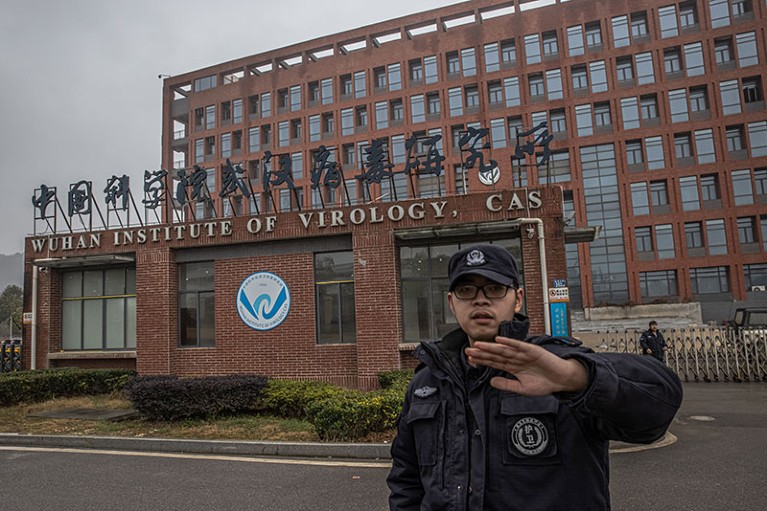
The Wuhan Institute of Virology in China has been at the centre of the debate over COVID-19’s origins.Credit: Roman Pilipey/EPA-EFE/Shutterstock
Researchers are upset over a new policy released by the US National Institutes of Health (NIH) to tighten oversight of its ‘subawards’. These are funds that a primary grant recipient can give to a collaborator to perform research on their behalf. The biomedical funder’s new policy, set to go into effect on 1 October, specifies that foreign subaward recipients, in particular, are subject to extra scrutiny.
They will have to provide copies of all relevant lab notebooks, data and documentation to the primary grantee every few months. The NIH also reserves the right to request access to this supporting documentation as part of its oversight responsibilities.
NIH reinstates grant for controversial coronavirus research
The NIH’s dealings with foreign researchers have drawn attention as debate rages over whether the COVID-19 pandemic had a natural origin, with the coronavirus SARS-CoV-2 passing from animals to humans, or whether it arose from a leak at the Wuhan Institute of Virology (WIV) in China, which is located in the city where early cases of illness were detected.
The nonprofit organization EcoHealth Alliance, based in New York City, has been especially scrutinized, as it had received funds from the NIH to study coronaviruses. A subaward on this grant was made to the WIV to study bat coronaviruses in the wild and to understand their potential to infect people. Part of this work involved creating hybrid bat coronaviruses, which some critics have decried as risky ‘gain of function’ research. (Based on EcoHealth’s grant application, the NIH determined that this study didn’t meet the bar for risky research.)
Researchers who spoke to Nature worry that the change to the NIH’s subawards policy will have a chilling effect on international collaborations; foreign researchers might forego partnerships because of the requirements. They also say that the policy will require researchers to spend an unreasonable amount of time to comply with it.
The policy is “heavy-handed” and disrespectful of international collaborators, says Sheela Shenoi, an infectious-disease physician at the Yale University School of Medicine in New Haven, Connecticut. “It suggests that international collaborators need additional oversight — that they don’t have capacity to do their own research in a rigorous and robust way.”
Amanda Fine, a spokesperson for the NIH in Bethesda, Maryland, responds that this provision “empowers primary recipients to obtain, on a regular basis, records and data from foreign subrecipients without having to worry that they will not be able to access materials when needed”. She adds: “As part of high-quality science, there should be a free flow of information, documents and data.”
Under fire
The NIH has come under fire from federal auditors for, among other things, its handling of the EcoHealth grant. When it first funded EcoHealth, the NIH instructed the organization to report any evidence of unexpected transmissibility or virulence of the hybrid viruses. A progress report from EcoHealth was two years late owing to a miscommunication and technical glitch, it has said. Federal auditors criticized the NIH for not pursuing this late report and recommended that the agency intensify its monitoring of foreign subaward recipients.
The shifting sands of ‘gain-of-function’ research
The NIH terminated EcoHealth’s grant in 2020, but then said it would reinstate it if EcoHealth would meet certain conditions, including obtaining the WIV’s lab notebooks. In part because EcoHealth was unable to do so, in August 2022, the NIH terminated the subaward altogether.
Peter Daszak, the president of EcoHealth, responds that oversight of federally funded research is important, but that the new policy on subawards might have unintended consequences that are counter to its mission. “This might lead to countries cutting collaborative ties with US scientists, rather than handing over their laboratory notebooks,” he says. “This would weaken America’s pandemic preparedness at the very time when we need to be developing partnerships in regions where the next pandemic is most likely to originate.”
Concerns voiced
Researchers have condemned the policy’s focus on foreign subawardees. Stefano Bertuzzi, chief executive of the American Society for Microbiology in Washington DC, says he supports additional accountability and oversight for subawards, but he is “puzzled by why only foreign entities are singled out”.
A virologist from Brazil, speaking on the condition of anonymity out of fear that they might harm their chances of receiving funding, says the policy adds a layer of bureaucracy, crafted with politics — not science — in mind.
‘Heinous!’: Coronavirus researcher shut down for Wuhan-lab link slams new funding restrictions
In addition to concerns about international partnerships, Gerald Keusch, associate director of the National Emerging Infectious Diseases Laboratory at Boston University in Massachusetts who organized researchers to protest EcoHealth’s grant termination in 2020, says that the policy imposes an administrative burden without providing additional funding to meet the requirements.
For some researchers, this isn’t a trivial matter. Oleksandr Zeziulin, a specialist in drug abuse and mental health at the Ukrainian Institute on Public Health Policy in Kyiv, says that because of Russia’s 2022 invasion, Ukraine has been struggling with constant power outages. “During the winter, we were struggling with our normal schedule, and we’re expecting the same next winter, given Russia’s attacks on power plants,” says Zeziulin, who is a subawardee on a grant with Shenoi. “If this policy will require an extra 10% of our time, I think it’s going to be [difficult], given the situation we’re in.”
Not all researchers think the policy is unreasonable, however. David Relman, a microbiologist at Stanford University in California, says it addresses concerns that “US expectations and standards for research reproducibility and transparency may not be shared elsewhere in the world”. But he also has concerns that it might discourage international collaborations and worries that it’s unclear which elements of lab notebooks subawardees would have to hand over. He calls on the NIH to clarify this provision and to clearly communicate to the research community the motivations and goals of the policy.
The ambiguity could mean that the policy will face legal challenges in some countries, says the Brazilian virologist. Many researchers work on multiple overlapping research projects from various funders, and some countries carefully safeguard data — for instance, biodiversity data in Brazil — that will be difficult to keep separate.
The agency is accepting comments on the policy until 26 June, but it’s unclear whether it will make revisions based on feedback. Fine says: “These changes have been made, they are not proposed.”




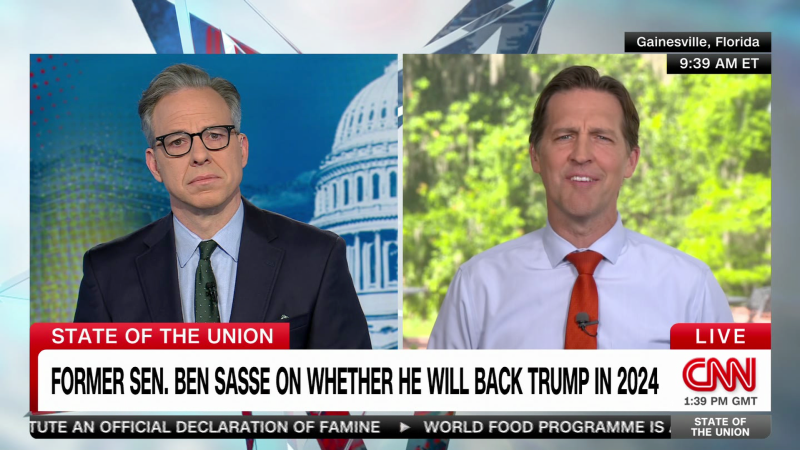
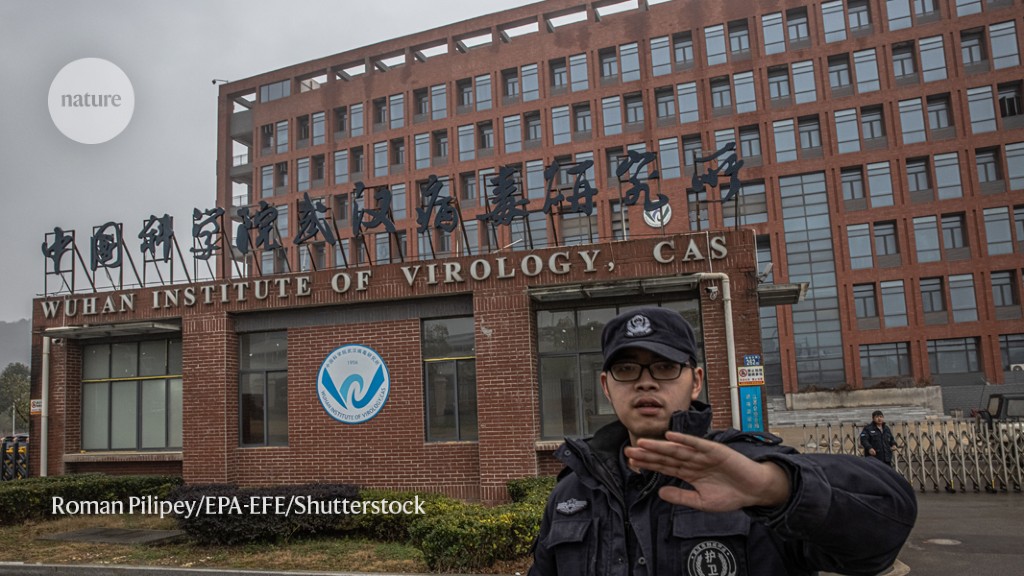
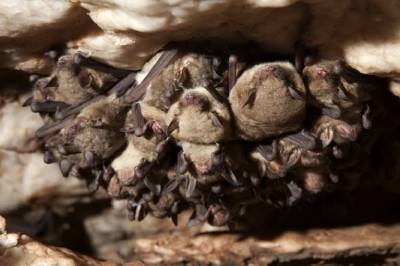
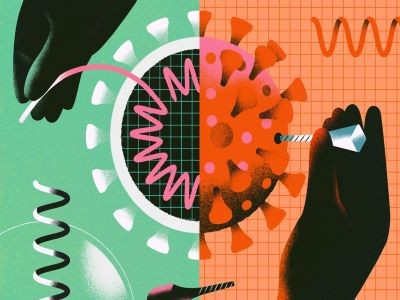

More News
Author Correction: Stepwise activation of a metabotropic glutamate receptor – Nature
Changing rainforest to plantations shifts tropical food webs
Streamlined skull helps foxes take a nosedive